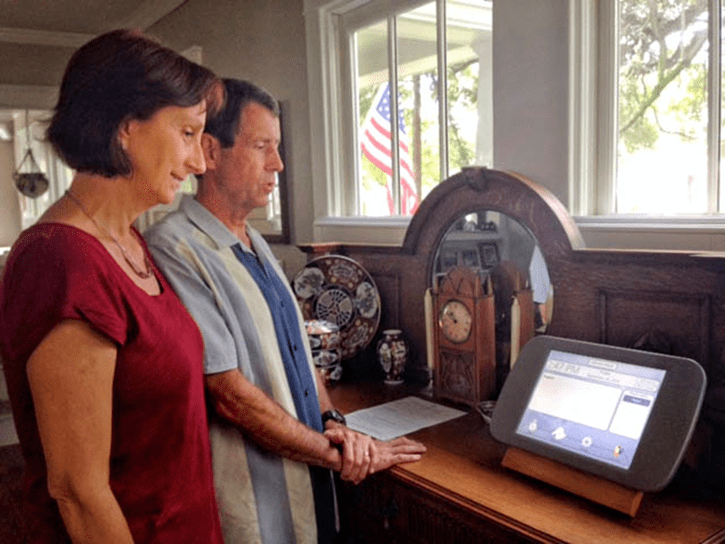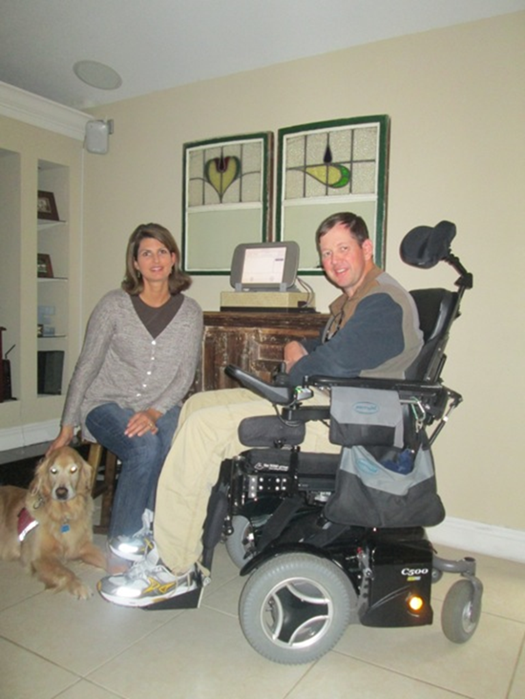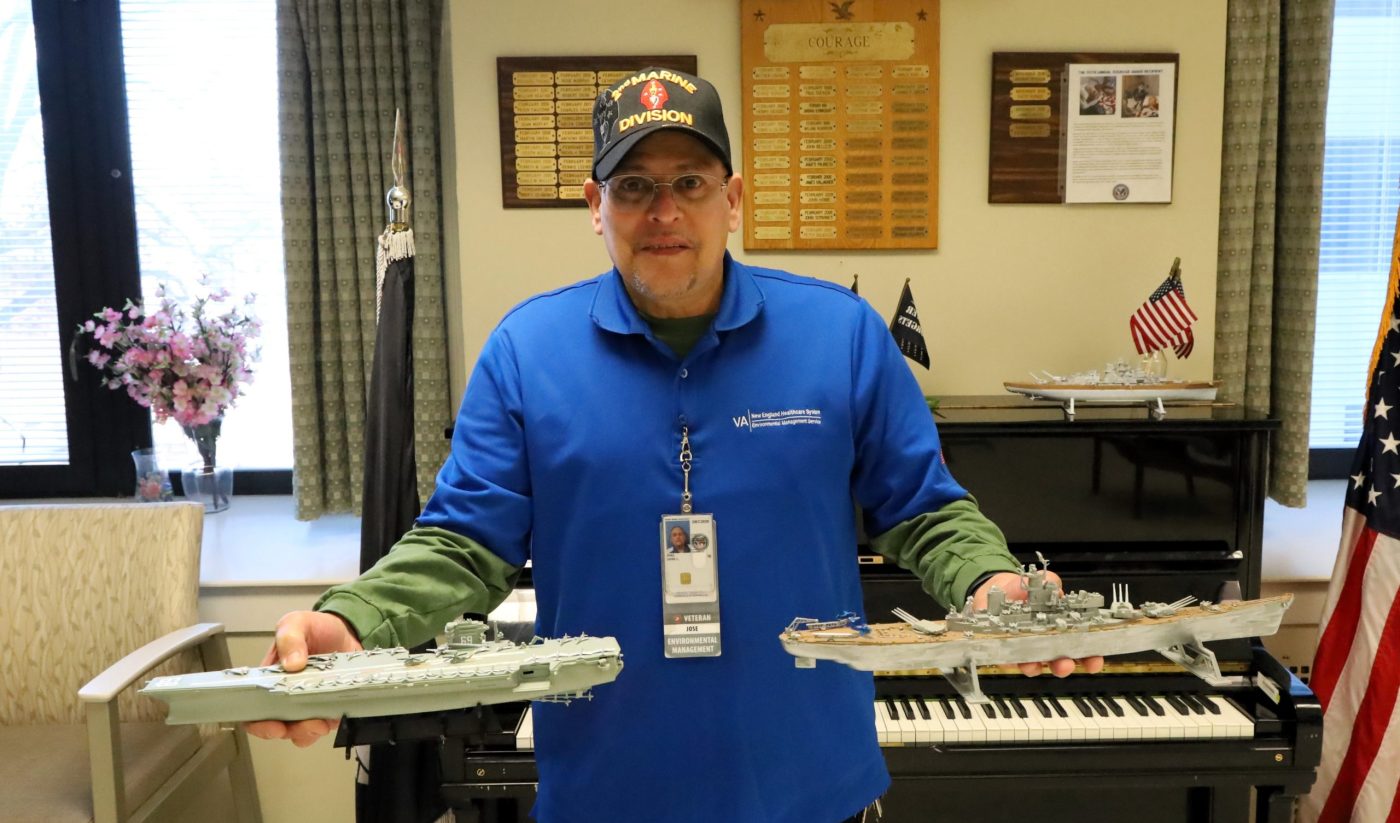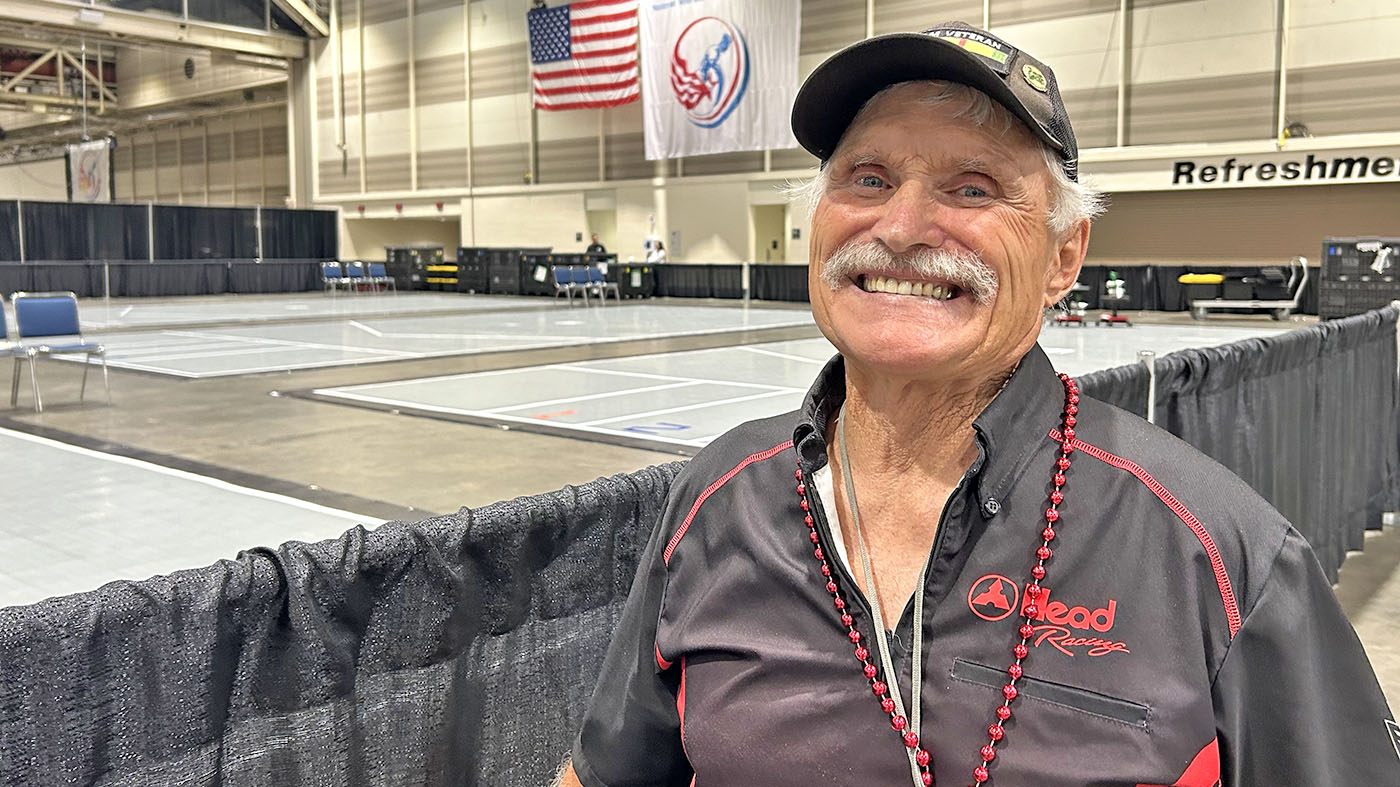VA researchers are doing amazing things to improve the lives of Veterans.
Here’s just one example: the Smart Home. This unique project uses advanced technology to help patients with traumatic brain injury (TBI) independently plan, organize and complete everyday activities.
Some Veterans with TBI have lost the ability to manage basic tasks like doing the laundry or taking out the trash.
VA’s Smart Home helps them relearn those skills by tracking their movements around their house and then sending them text or video prompts when they get off track. The remarkable indoor tracking technology can pinpoint the Veterans’ location to within six inches.
The Tampa VA Medical Center has installed the high tech equipment in five apartments housing 10 Veterans. It has a system that not only tracks their locations but has sensors that monitor the use of appliances. For example, the washing machine sensors determine when the Veteran puts soap in the machine and also shows when he or she empties the machine after the load is completed. If the user forgets to do either, a nearby screen prompts them to complete those steps. The Smart Home can also notify a caregiver if an activity is not completed.
Other sensors in the bathroom determine how long a patient has been shaving and if they are taking too long, they are prompted to finish that task and move on.
The technology promotes Veterans’ independence by providing reminders for the management of other daily activities such as medication, meal planning, and other necessary tasks.
Smart Home has been described as a “cognitive prosthetic” with the goal of rehabilitating Veterans with TBI so they can function normally in society.
A powerful feature of the Tampa Smart Home is the precision of the customized therapeutic information that can be provided to the recovering Veteran. Data for every interaction with clinical and medical staff are recorded continuously and analyzed, helping the staff visualize subtle but therapeutically significant behavioral changes. Reports are sent back to the clinical team on a weekly basis
This helps to better inform treatment plans and potentially prevent problematic medication effects on Veterans’ memory, as well as gait and balance.
A little more technical information? The Veteran patients and VA staff wear wrist tags linked to a real-time location system that tracks the tags using wall sensors. It’s ultra-wideband technology. The wrist tags broadcast their ID on a 6-to-8 gigahertz channel and uses time-delay-of-arrival and angle-of-arrival methods to determine position in three dimensions.
The Smart Home innovation recently received third place in VA’s Brain Trust summit. The national summit brought together the public and private sector, Veterans, caregivers, clinicians and innovators to tackle the issues of brain health.
One of the leaders of the project is Dr. Steven Scott, co-director of VA’s Center of Innovation on Disability and Rehabilitation Research and chief of physical medicine and rehabilitation at the James A. Haley Veterans Hospital in Tampa. Scott is a nationally known expert in the fields of physical medicine and rehabilitation with research expertise in polytrauma and traumatic brain injury. Much of his work focuses on the rehabilitation and reintegration of Veterans who have experienced blast-related injuries.
Advances like this are being celebrated this week, Research Week, at VA medical centers around the country.
Join us as we celebrate 91 years of research excellence and attend one of the many activities being conducted nationwide.
For more than 90 years, the VA’s Research and Development program has been improving the lives of Veterans and all Americans through health care discovery and innovation.
VA research is unique because of its focus on health issues that affect Veterans. The groundbreaking achievements of VA investigators—more than 60 percent of whom also provide direct patient care—have resulted in three Nobel prizes, seven Lasker awards, and numerous other national and international honors.
Topics in this story
More Stories
One strategy credited for the improvement is a focus on building trust and stronger patient-provider relationships.
Army and Marine Corps Veteran started making models after being hospitalized at Connecticut VA.
Veteran Hank Ebert is a bit of a superstar in the National Veterans Wheelchair Games. He has been attending since 1993.








I’m very satisfied with my primary doctor at the VA Clinic in Slidell, La. He takes his time with all his patients, not like outside private doctors who run on a 15 minute schedule.
The “Choice Card” needs to be improved. I sent my request in on April 27th, 2015 and now I will receive my operation on June 9th, 2016 . It was the outside doctor and the VA, Tri-West system that didn’t coordinate and needed more information on how the system works.
Most VA doctors fall short of giving real care because high up supervisors in the VA don’t want to care for veterans or don’t know how to care for veterans or doesn’t have the money to care for veterans because they wasted on illegal bonuses that they get for not helping veterans. Choice card program doesn’t work because it takes so long to get approved for any procedure that you do. A civilian doctor cant help you because they have to get permission to help you and the VA won’t give it. A veteran is always fighting for his rights every day from travel to seeing a doctor to get inning Nonformulary drugs because once again the bottom line is nonformulary drugs cost money.
I was just told I can not be seen by BTI clinic because it was not during gulf war to today , my head injury 1977. I get nasty headace , when MOTHER NATURE changes, it hit found no meds to help. All I I hot from antidepressants is a nasty side effects, their a new item out vs testing in NC va I can’t get that even. 1 doc told me truth thier no meds will help me for my headaches. 10 yrs ago it still stands other doc old age, but why did the mri found micro bleeding lady side of head , no one in the. Does not feel it normal, u what a head part combat boot left side of head 10x plus see how it feels think these quack need kick in head wake up help us veterans. Brush them off after grad from college, new student next time,, please note doctor 2nd opinion has different though thier more thier than what was said by the student in nerulogy
I’m trying to get in Madison va TBI clinic but I was told not qualified , I got head injury 1977 got out 1981 been fighting for va care, I’m still fighting, Nero student doc told. Me I’m not able join the clinic but I had a mri brain, neck she told me old age, but 2nd opinion from choice doc found thier was spot on left temple, show injury, she just try say some stuff cover from mri test!!!!!!!! All they need look 1977 when I had injury. What happened during the following month while in hospital. I hope I get off my case have a va doctor no student doc in training. I hate va when change doctor 3 one have not seen it, talk nurse what I need to be done,. See pain clinic , but I was told they refuse d cc me!!!! Thier new item for migraine but student doc refused chk into it more, I did 350 + 25 for items go with it no one at the va doctor seem keep see what new testing on vets. Why does big brother keep those puppets on his string, doctors, nurses, any other services to help veterans out.